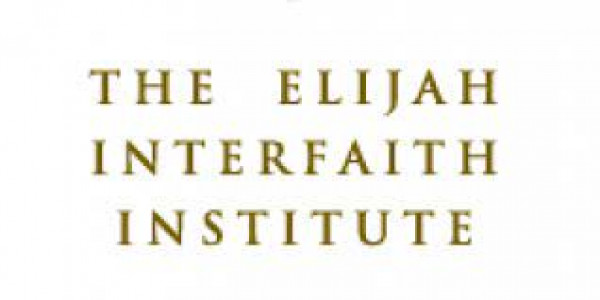The Concept of “Return”. Idea of Exile and Return
01/09/2022 | Na stronie od 01/09/2022

Source: Elijah Interfaith Institute
In our first conversation between scholars, we focused on the idea of Exile and Return.
When it became possible to return to Jerusalem for our summer school, after two years on Zoom, the theme “Return to Jerusalem” seemed natural. After the opening session, in which participants shared sources and ideas from their diverse traditions on multiple dimensions of Return, we devoted each afternoon to one particular dimension. Scholars from the Elijah Board of World Religious Leaders and the Elijah Academy presented their distinct approaches. In our first conversation between scholars, we focused on the idea of Exile and Return.
Alon Goshen Gottstein opened the session.
Grand Mufti Mustafa Ceric shared ideas from Islam and emphasised that while the idea of returning to one’s home is a beautiful and important concept, true “return” for a person is not geographical. We yearn to return to our Maker – to be reunited with the source of our being.
This is a characteristic of human beings; it is part of our spiritual essence, and is beyond our physical being. He explained that acknowledging that we have such a yearning is a form of wisdom and inspires us to seek greater wisdom which will help us achieve our spiritual goals.
Quoting from the great Mediaeval philosopher and spiritual leader, al-Jilani, Mufti Ceric described the levels of return that one might experience on her/ his spiritual path. He provided explanations of the many Arabic terms used in Islam to describe different types of wisdom and the rewards of knowledge.
His presentation suggested that the return to Allah (God ) is an outcome of a moral life, where the soul and the intellect are both focused on reunification with the Divine. Every human being has the capacity to return.
Following Mufti Ceric, another member of the Elijah Board of World Religious Leaders,Swami Atmapriayanda, from India, provided a Hindu perspective on ideas of return and exile. There were some remarkable parallels between these two scholars: both saw the desire to reunite with the Divine as inherent to human nature; both spoke about stages in the process of return. However, whereas Mustafa Ceric spoke about the effort needed, particularly the intellectual effort, Swamiji taught that the ultimate stage of the process of return was to be able to abandon the intellect and become like a child crying for her mother, even while not having the vocabulary or intellectual development to articulate her needs. The higher, pure mind is beyond intellect. He distinguished between the “essence” of God and “qualities” of God. Our yearning is to return to the essence.
The human state of unhappiness or dissatisfaction is caused by our abandoning our own essence, which is a simple desire to return to the Divine.
The essence of “return” in Hinduism is to stop the emphasis on our physical senses and to abandon ourselves to our heart and our spiritual selves.
Our next teacher was Rabbi Professor Reuven Kimelman, who added Hebrew terms to the multiple rich vocabulary of “return” with which we were presented. He noted in his introduction that each teacher felt compelled to speak in the language of their faith, admitting that translation cannot do the terminology justice.
The concepts of exile and return are prominent in Judaism and Professor Kimelman illustrated how return to the self, return to the Divine and return to the Land are interrelated in the sacred narrative, in the liturgy and in the moral precepts. He spoke about “return” as both restorative and redemptive – return to an ideal past or advancing to a utopian future.
Our final teacher was Professor James Fredericks and he began by acknowledging how much of Christianity is based on its Jewish roots. He resonated with much of what Professor Kimelman had presented – but understood many of the metaphors differently. He posed some key questions about the idea of return.
Augustine of Hippo’s “City of God” was an important source for Professor Frederick’s presentation.
He explained that Christianity distinguished itself from its mother religion by redefining return: Christianity explicitly rejected the idea of return as a geographic concept – repudiating the Jewish idea of an ultimate return to the Holy Land, a physical destination. It also has a strong critique of political society.
As a result of historical circumstances, Christianity removed exile and return from geography and redefined it solely in terms of the human condition on earth.